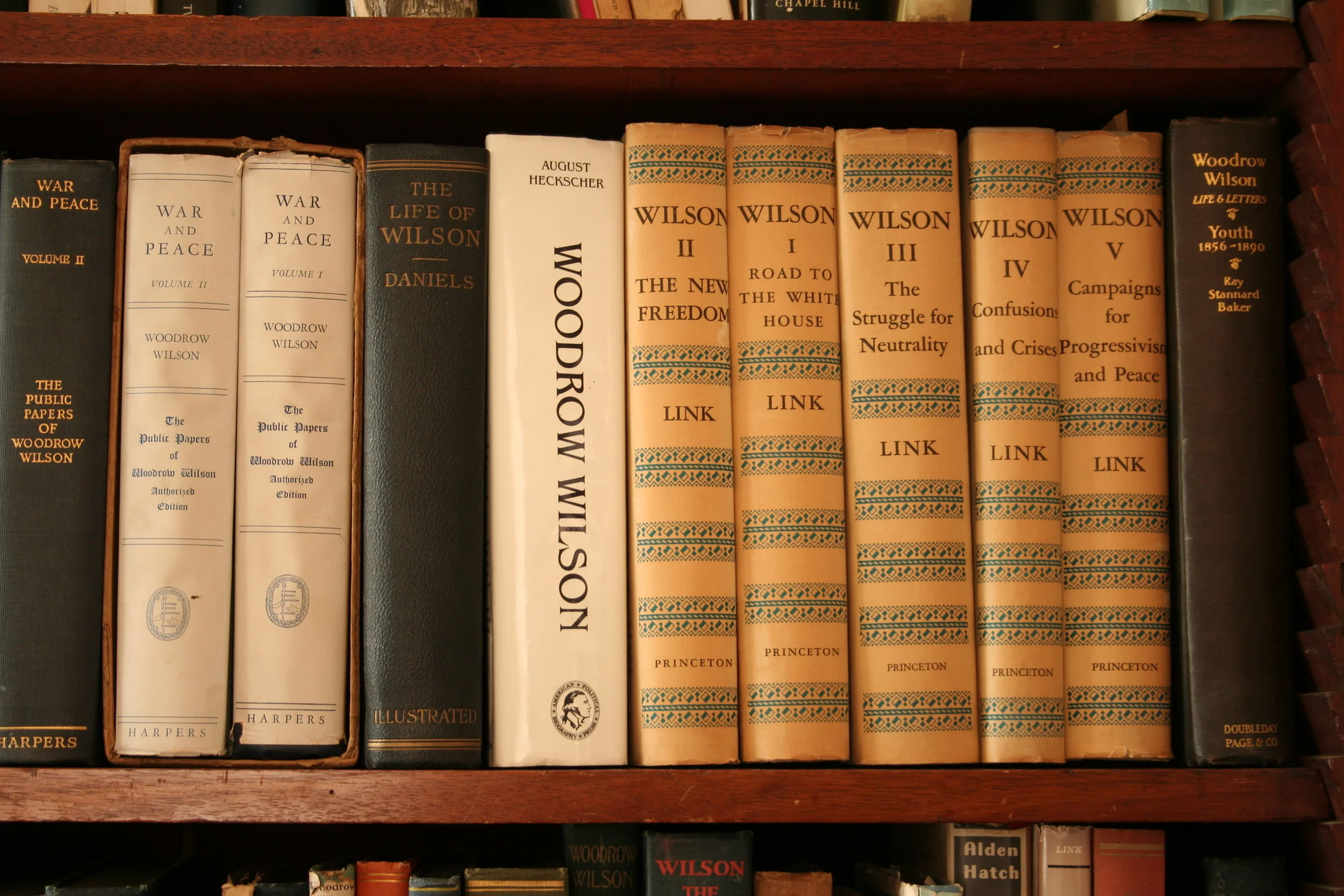German Education
/Johns Hopkins University Glee Club
An article by W. Barksdale Maynard in a 2007 issue of the Johns Hopkins Magazine quotes President Wilson from the 1919 Peace Conference. “I have always disliked German people. I have despised their educational ideas.” This is a bit of a surprise, since he chose to be among one of the early classes of graduate seminars at Johns Hopkins while still a young man. Johns Hopkins was known for being the first American research university that followed a German model of graduate education. In fact, in a letter to his old friend from law school at the University of Virginia, Richard Heath Dabney, Woodrow Wilson writes that he was encouraged to go the famous school in Baltimore because of Dabney’s university education in Germany. “Away off there in Europe, surrounded by everything that is attractive in the old world, deep in the work of a great university, and looking forward to a Ph.D. in Berlin.” So, Wilson decided to go to Johns Hopkins to study, “the very subjects which you are now studying in Germany under the great masters with unpronounceable names.”
Wilson Writes to Germany
However, and this seems to be what Maynard connects to the statement over thirty years later, there was much about the seminar that Wilson did not like. He complained about the cramming and the specialization. He also seemed to have particular trouble reading German. Several biographies mention that his wife Ellen studied the language to help him understand important texts. In the end he was so dissatisfied that he left after successfully publishing a book on congressional government, but failing to meet all of the Johns Hopkins requirements for a PhD. His experience with what people were calling German education had left a bad taste in his mouth. We should not forget however, that later as president of Princeton University, Wilson would also spend years building a world-class research university with academic departments and a graduate school, so he had given a lot of thought to how an American version of that would differ from the German model.
After graduate school, Woodrow Wilson managed to get a teaching position at the newly-opened Bryn Mawr (itself modeled after Johns Hopkins). Eventually, he requested the doctoral degree based on the success of his book, and his former professors were happy to make it happen. Herbert Baxter Adams wrote to him in April of 1886:
I have talked over the situation with Dr. Ely and Pres. Gilman & we all agree that there is no chance of any degree without examination before the Board of Univ. Studies. But this point is also clear to us all. There is no chance of your being plucked. Dr. Ely and I will conduct your examination, both written & oral, in a manner at once considerate & just.
Bryn Mawr College
There is one curious footnote to this story. Shortly after he started teaching, Wilson wrote to Dabney, congratulating him on earning his German PhD. “It is a highly valuable, almost indispensable, ticket of credit, label of quality.” A little more than a week later, he wrote to Dabney again, asking about the costs of living in Germany, if he were to take his family there for a year or two to improve his German and give himself time to work on a book, though he worried about what that would do for his job prospects. “Is the benefit to be expected greater or less than the risk which is inevitable?” Dabney only replied that things were indeed cheap in Europe. In the end, Wilson opted to request the doctoral degree from Johns Hopkins and to move on to a teaching position at Wesleyan, so we can only wonder the course his career would have taken, and the views of Germany he would have had, if he had gone through with his plan to live in Berlin for a time.







